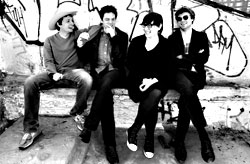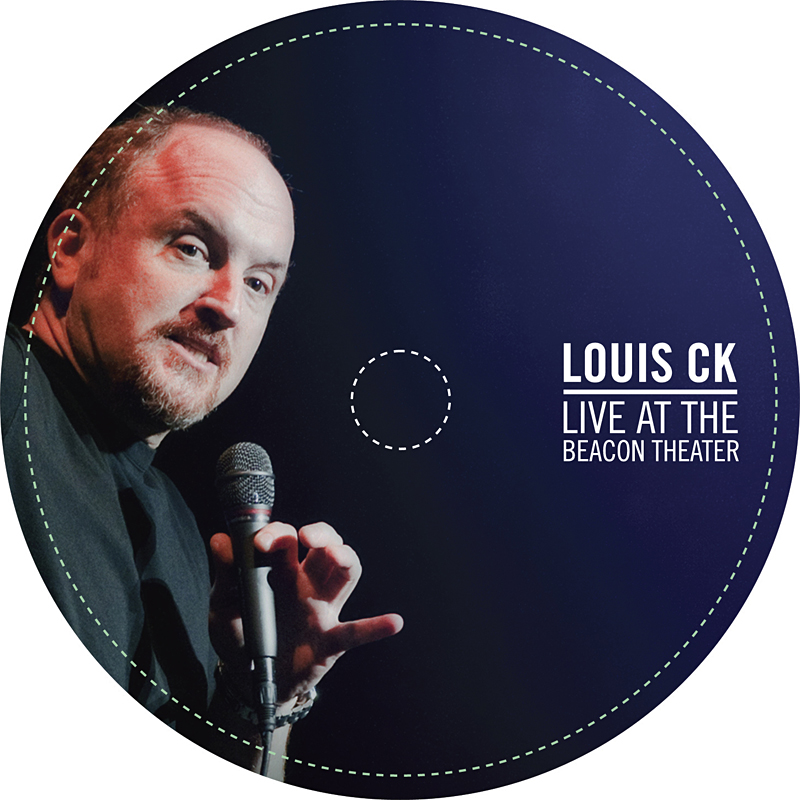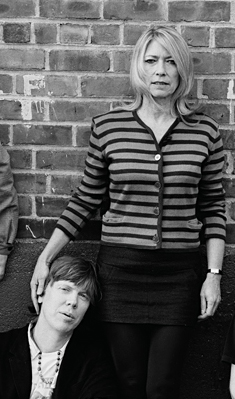The title track of Nico Muhly’s Mothertongue begins with a woman’s voice. In her awkward tone—halfway between that of a soprano and the flat, automated voice menu you hear when you call corporate customer service—she rattles off line upon line of information, including mailing addresses, phone numbers, the alphabet, and mnemonic phrases such as “I before E except after C” and “31 days hath September, April, June, and November.” It’s one big sheet of chatter, which Muhly underscores with a gorgeous and somber thread of viola and keyboard. The effect is not unlike taking 20 milligrams of Adderall while sitting in a busy international airport: Jittery and obsessive, but serene and focused at its core.
“That’s exactly what I was going for,” says Muhly. “I was thinking about how an airport is a neutral space, but it’s also an emotional one in a lot of ways. I mean, just sitting in an airport, if you’re waiting for a flight or whatever, you look around and there are so many little operas happening.”
Muhly is a composer who was born in Vermont. He has performed all over the world, worked for Philip Glass and Björk, and was the subject of a glowing New Yorker profile earlier this year. At 26, he is often regarded as one of few artists writing classical music that’s pertinent to the modern era.
For “Mothertongue,” Muhly says he invited mezzo-soprano Abigail Fischer into the studio and said: “OK, now I want you to recite off the top of your head all the addresses of places you ever lived. Then I said, ‘OK, now all the phone numbers you can remember.’ The rule was that nothing could be written down, except for the addresses of places where I lived, because she didn’t know any of them.”
In addition tothe lists ofplaces and numbers, Fischer also recites the names of all50 states and the intro to The Canterbury Tales. All told, the songcontains 15 vocal tracks,one layered on top of another, and was partly an experiment in the ways people retain information in a tech-saturated world. As Muhly says, he has no trouble remembering the phone number of a place in his hometown. But dialing his longtime Manhattan roommate’s cellphone? “You think I can remember that bitch’s number?” he says. “No.”
Speaking to Muhly is an exercise in keeping pace. He is refreshingly eager to answer questions and often begins responding before you’ve finished asking. When he speaks, his mouth hustles to keep up with his thoughts. One imagines he’s not much for casual strolls in the park, but is rather keen on brisk walks from one destination to the next.
Muhly is a composer in the strictest sense, classically trained and deeply inspired by 16th- and 17th-century English religious music. Though laptops play a role in his music, he still writes notation by hand. He’s also a bit of a gourmand, and finds a parallel between cooking and composing.
“The similarity is both metaphorical and physical,” he says. “They both involve a lot of prep work followed by this joyful end result that’s really satisfying to me. And I write really well if I’m cooking. Like if I have a stock and it’s going to take three and a half hours to make, I can be writing and get up every now and then to check on it and stir it. Plus, having something on the stove is a really great excuse to get off the phone with somebody. Y’know: ‘My stock’s burning, I gotta go!'”
Texts and manuscripts play a significant role in Muhly’s prep work. For instance, “Wonders,” the centerpiece of Mothertongue, contains snippets of The Travels of Sir John Mandeville (a 13th-century book said to have influenced Christopher Columbus), an excerpt from an article on cod from the Icelandic magazine Morgunblaðið, and a sonnet about sea monsters by King James I of England. In his music, Muhly’s appetite for knowledge is consonant with his curious ear. Throughout Mothertongue’s washes of oboe, harpsichord, and viola are the sounds of whale fleshsloshing aroundin a bowl, the wind in Iceland, and the scraping of butcher’s knives.
Mothertongue was recorded mostly with Icelandic musician and producer Valgeir Sigurðsson (he also produced Muhly’s debut Speaks Volumes). Though Sigurð-sson’s well-known for launching the Bedroom Community record label, he is best known for his work with Björk. Through his connection with Sigurðsson, Muhly was able to add Björk to his résumé, performing on her album Medulla. He’s also collaborated with Antony Hegartyof Antony and the Johnsons,and written string arrangements for Bonnie “Prince” Billy’s Sigurðsson-produced The Letting Go. Needless to say, Muhly’s audience has expanded to the indie-rock crowd, something he finds enlightening and fascinating.
“With indie people, there’s more of a flash reaction to the music,” he says. “In something like the classical tradition, where there’s like 800 years of work to be referenced, the indie people don’t necessarily know the names of the composers or who it sounds like, so their reaction is different. A lot of the critics, when they’re really knowledgeable about one thing, they get so reference-y, like that horrible [New Yorker critic] Sasha Frere-Jones, and all they can say is who it sounds like, but they can never say what it sounds like.”
So what does Mothertongue sound like? In addition to evoking imagery of busy international airports, there are moments of sun-dappled fantasy landscapes, twisted castle halls, ancient stone churches, round-the-clock newsfeeds, cramped city sidewalks, majestic and sweeping weather patterns, wave-battered seaships, and eerie pastoral settings in America.
You could also say it sounds like Steve Reich and Philip Glass interpreting the renaissance works of William Byrd and John Taverner. But what’s the fun in that?








